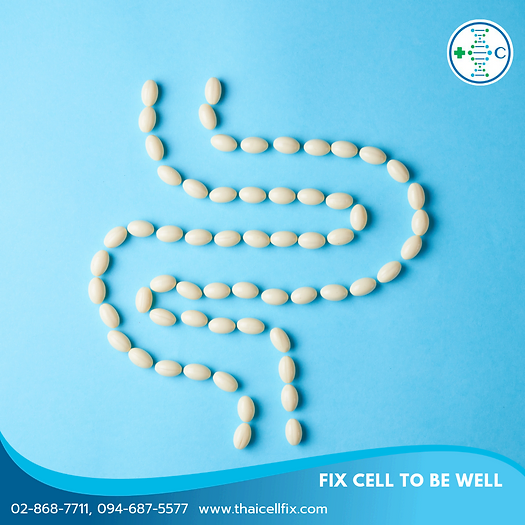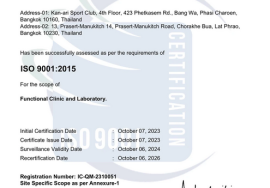
The cause of depression is from the brain. Research suggests probiotics can help treat depression.

In today’s world, there are thousands of events that can cause us stress, pressure, and depression. In people with normal brain chemistry, these emotions will gradually go away with stress-relieving activities. However, in people with abnormal brain chemistry, it will be difficult to cope with sadness and it will take longer than others, eventually leading to depression.
In this article, CelFix will take you on a journey to learn more about depression. We will also check your depression level and review research that suggests that depression can be cured with probiotics in the early stages.

Depression is caused by the malfunction of the nervous system and the abnormal secretion of chemicals in the brain.
How does depressive illness occur?
The causes of depression are divided into 2 factors:
1. External factors
Situations, events, and people that make us feel sad, stressed, or pressured, as well as regular alcohol consumption, can also affect the neurotransmitters in the brain, making us feel even sadder and more stressed.
2. Internal factors
Studies on brain differences have found that patients with a history of depression have smaller hippocampi, which are small brain parts that store memories, than people who have never had a history of depression. These small hippocampi can only receive a small amount of serotonin, the “happy chemical,” which affects mood.
Some studies have found that the reason why people with depression have smaller hippocampi is due to cortisol, a stress hormone that is abnormally released, which affects the development of this part of the brain
HL2: How to measure the level of depression?
Measuring the level of depression requires analysis by a medical professional, but if you want to check if your friends are at risk of depression, you can easily check by answering 2 basic questions from the Department of Public Health:
1. In the past 2 weeks, including today, do you feel sad, depressed, or hopeless?
2. In the past 2 weeks, including today, do you feel bored, and nothing you do is enjoyable?
The answer is “yes” or “no”.
Processing
If the answer is no to both questions, then it is considered “normal, not suffering from depression.”
If the answer is one or both of the above (having any of the symptoms in questions 1 and 2), it means “being at risk” or “likely to suffer from depression”, continue with the assessment. Depression 9Q

The measurement of the level of depression must be done by a medical professional.
Diseases with symptoms similar to depression, but not depression.
Depression is a disease that must be diagnosed by a medical professional only. Self-checking depression is only a preliminary screening because there are still diseases that have symptoms similar to depression but are actually not depression as follows.
1. Mood Swing
It is a disease with extreme mood swings, such as extreme sadness, and suddenly feeling happy or extremely happy. The treatment methods will also vary.
2. โรควิตกกังวล (Anxiety)
Anxiety is a major symptom of depression, but anxiety disorders are not the same as depression. If you are a patient with an anxiety disorder, you may have symptoms such as shortness of breath, palpitations, and nervousness. However, you will rarely experience boredom in life like depression.
A new discovery has been made from the hypothesis that “searching for the link between gut health, especially bacteria that affect mental health,” by Dr. Nikolova, the head of the research team from the Psychiatry, Psychology & Neuroscience Institute at King’s College London, published in Medical News Today.
The team conducted a study by grouping outpatients with depression. They only selected those who scored higher than 13 points on the Hamilton Depression Rating Scale (HAMD-17) and had been taking antidepressants for 6 weeks or more. This resulted in a total of 49 patients participating in the study, divided into 25 who received a placebo and 24 who received a dietary supplement containing 14 probiotic strains. The study observed the symptoms of the two groups for comparison for 4 weeks.
One interesting observation was that after taking probiotics in conjunction with antidepressants, the anxiety scores decreased significantly. This suggests that probiotics may be involved in the treatment of mental health, especially depression.

Probiotics may be involved in the treatment of mental health, especially depression.
This is only a pilot study, but it found good signs that we can treat depression by allowing the body to slowly heal itself through probiotics. However, further research may be needed to determine the exact strains of probiotics that are most effective, as well as the recommended dosage. CelFix believes that this research will be valuable and provide hope for patients, both in the early stages and in other stages.
References
It is important to have your mood checked by a medical professional before deciding what disease you have. But above all, friends can use scientific testing (Lab) to detect abnormalities in neurotransmitters in the brain. From a urine test or Urine Organic Test, the test results can tell whether your friends have a tendency or risk of developing mental health diseases or not. Whether it is depression, panic disorder, alcoholism, etc.
The method for urine organic test can be found at the link below.










